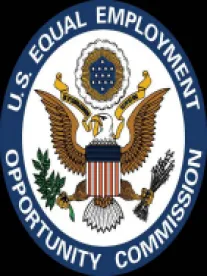New guidelines focus on an employer’s obligation to reasonably accommodate religious garb in the workplace.
On March 6, the Equal Employment Opportunity Commission (EEOC) published new guidelines that discuss the application of Title VII to employers’ religious dress and grooming policies.[1] The guidelines set forth the EEOC’s position that employers are obligated by Title VII to accommodate an employee’s reasonable request for modification of dress and uniform policies, absent undue hardship.
The new guidelines emphasize that an employee’s request for accommodation must be grounded in sincerely held religious beliefs, and employers are permitted to request verification of the sincerity or religious nature of those beliefs. Employers must be cautious, however, to not assume a lack of sincerity based on assumptions about an employee’s religion. According to the guidelines, employers must accommodate sincerely held beliefs, even when they deviate from commonly followed tenets of an employee’s religion.
Notwithstanding this broad interpretation of Title VII, the guidelines acknowledge that employers may refuse a requested accommodation where it would cause an “undue hardship,” which is defined as anything that would cause more than a de minimis cost or burden on the employer’s operations. Notably, this is a lower burden than applied in the undue hardship analysis pursuant to the Americans with Disabilities Act.
Nonetheless, the guidelines make clear that customer preference (real or perceived) is not sufficient to establish an undue hardship, nor is decreased employee morale or jealousy from co-workers who are not excused from standard dress and grooming policies. Instead, the guidelines state that an employer may deny a requested accommodation where it would impose a health, security, or safety risk. For example, the guidelines include an example of an employee who works in a sterilized environment and is subject to a policy that he be clean-shaven, but where he requests to be excused from this requirement based on his religious commitment to not shave his beard. The guidelines explain that the employer must reasonably accommodate this request, but the employer would be permitted to ask that the employee wear multiple face masks to blunt the health and safety risk of the accommodation.
The EEOC’s guidelines were released in the wake of a recent increase in religious discrimination charges filed with the EEOC. Specifically, there were 3,721 charges of religious discrimination filed with the EEOC in 2013, an increase of more than 100% since 1997, when just 1,709 such claims were filed.
Although the EEOC’s guidelines are not binding on courts, the agency’s examples appear to be largely drawn from a series of litigations brought by the EEOC against employers around the United States, some of which led to consent decrees. For example, one employer recently agreed to enter into a $100,000 agreement arising from a charge brought by a Muslim employee who claimed that she was not permitted to wear a head scarf while working.[2] The employer’s agreement with the EEOC required the company to institute an accommodation policy, to post notices, and to conduct management training.
Recommendations
Employers should understand that many religious beliefs can meet the definition of “sincerely held,” even those that arise from religions or religious beliefs that are unknown or unfamiliar to the employer. Employers should review their current dress and grooming policies to ensure that they set forth the processes by which employees may request religious accommodations where necessary. Employers should also conduct training for managers regarding Title VII’s religious accommodation requirements.
Danish Kadish also contributed to this article.
[1]. View the guidelines here.
[2]. U.S. Equal Employment Opportunity Comm'n v. 704 HTL Operating, LLC, No. 11-cv-00845 (D.N.M. consent decree entered Nov. 15, 2013).



 />i
/>i

